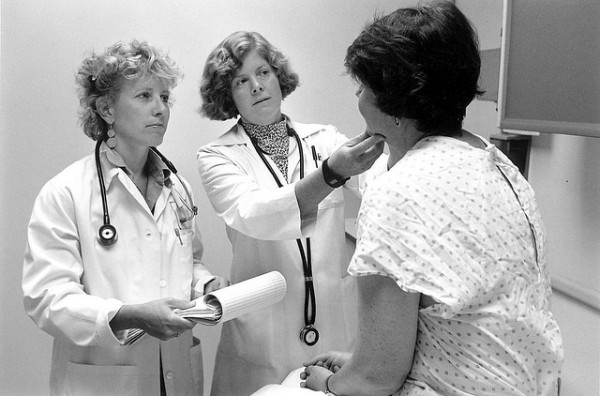Australia Recommends Less HPV Testing

In light of remarkably low human papillomavirus infection rates in Australia, Australian health officials are proposing changing their recommendations for regular pap-smear screenings from every two years to every five years.
The Australian federal government's Medical Services Advisory Committee is recommending that the number of regular screenings for the human papillomavirus that a woman should undergo within a decade is reduced by more than half, according to reports from The Australian. The committee is also suggesting that testing could begin at age 25 instead of 18 without causing any notable change in Australia's current HPV infection rate.
This change in recommendations is suggested a year after it was revealed by a study published in the British Medical Journal (BMJ) that Australia's HPV vaccine program has been a massive success, leading to the highest vaccination coverage rates seen in any nation. The study, compared coverage rates before and after the implementation of the Australian HPV vaccination program back in 2007. According to the study, the program -- which offers free HPV vaccination regimens to young teens and catch-up programs to women under 26 years old -- lead to nearly 83 percent of all school-aged females receiving at least one dose of the HPV vaccination in 2010. Vaccination coverage rates for the United States are not even half of that, with only 35 percent of all women under the age of 26 reporting having received one or more HPV vaccination doses, according to the U.S. Centers for Disease Control and Prevention.
Predictably, in the wake of a massive rise in vaccination coverage, HPV infection rates have seen a significant decline since 2007. According to the BMJ study, genital warts rates also saw a massive decline, dropping by 93 percent among young women by 2010. Past studies have shown that the HPV vaccine is a strong preventative measure against genital warts, even with just one dose.
With vaccination coverage numbers so high and HPV prevalence so low, the Australian Medical Services Advisory Committee has determined that reducing the regularity of HPV screening will not negatively impact women, but will alleviate some burden from medical testing facilities which can become back-logged and over-worked in such a HPV conscious country.
While the U.S. may not have high vaccination rates, the Food and Drug Administration did recently approve the use of DNA-based HPV screening has been called more accurate than standard pap-smear testing.
Apr 28, 2014 03:16 PM EDT




